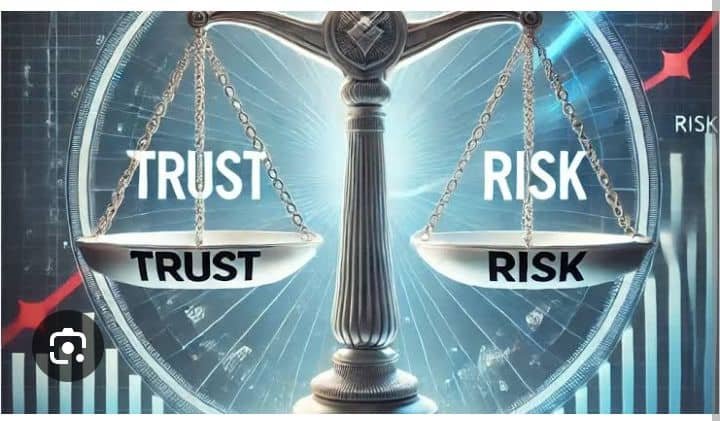The Tangible Economics of Public Trust: Quantifying the Global Balance Between Investment and Reward
Gaining and maintaining public trust transcends mere goodwill; it operates within a rigorous economic framework demanding strategic resource allocation. Organizations and governments worldwide navigate a complex calculus, weighing significant investments against the substantial, often quantifiable, benefits of a trusted reputation. The evidence from diverse global contexts underscores that trust is not an abstract ideal but a concrete asset with measurable inputs and returns.
Building trust necessitates substantial, upfront investment. Consider the establishment of institutional safeguards. Australia’s creation of the National Integrity Commission in 2020 represents a direct financial commitment to transparency and accountability within the public sector. This investment aligns with tangible outcomes, as reflected in Australia’s consistently strong performance on Transparency International’s Corruption Perceptions Index (CPI), scoring 75/100 in 2020, placing it among the top 11 countries globally. Similarly, the African Union’s launch of its Anti-Corruption Board in 2018 required significant financial resources dedicated to fostering trust among member states, acknowledging that systemic integrity requires funded infrastructure. Beyond direct costs, opportunity costs are inherent. Canada’s allocation of CAD 2.2 billion to support Indigenous self-government and reconciliation exemplifies a deliberate choice to prioritize trust-building, consciously diverting those substantial funds from other potential government initiatives.
Transparency serves as a cornerstone investment yielding measurable trust dividends. Buenos Aires provides a compelling case study. The city’s implementation of the “Buenos Aires Abierta” platform, granting citizens open access to public data, budgets, and contracts, demonstrably impacted public perception. Studies indicated that such transparency initiatives contributed to a measurable increase in trust in local government, with reports suggesting a rise of approximately 22% in citizen trust metrics following the platform’s enhancements, demonstrating the return on investment in open governance tools. Estonia’s nationwide e-government program further exemplifies the economic efficiency gained through transparency. By providing citizens and businesses seamless, transparent access to services and information, the program has reportedly saved an estimated 2% of GDP annually in administrative costs and time savings, showcasing how transparency can generate significant economic efficiencies while building trust.
Accountability mechanisms are essential infrastructure for maintaining trust, preventing costly breaches. Hong Kong’s Independent Commission Against Corruption (ICAC), established in 1974, offers a long-term perspective. Its rigorous investigations into public and private sector corruption demonstrably shifted the territory’s corruption perception. When the ICAC began, corruption was endemic; by the 1990s and early 2000s, Hong Kong consistently ranked among the least corrupt regions globally on the CPI, with public surveys showing a dramatic drop in the perceived prevalence of bribery from over 3.5 incidents per person annually pre-ICAC to below 1.3 within two decades. This institutionalized accountability directly fostered an environment conducive to business and public trust. Conversely, the catastrophic failure of accountability embodied by the Volkswagen emissions scandal in 2015 offers a stark lesson in reputation risk economics. The deliberate deception led to an immediate and profound loss of trust, translating directly into financial devastation. Volkswagen faced penalties, settlements, buybacks, and legal costs exceeding €30 billion globally, alongside a significant and lasting dent in its brand reputation and market value, illustrating the immense potential cost of trust erosion.

Consistency in delivering quality services and keeping promises is a powerful, long-term trust builder with observable economic benefits. Singapore’s government exemplifies this principle. Its relentless focus on efficient, effective, and transparent public service delivery has cultivated exceptionally high levels of citizen trust. The 2023 Edelman Trust Barometer reported that 76% of Singaporeans trust their government, placing it among the highest globally. This trust translates into tangible economic advantages, including high levels of foreign direct investment, efficient policy implementation, and social stability, all contributing to the nation’s robust economic performance. Similarly, Rwanda’s strategic allocation of scarce resources towards its national healthcare program, particularly focusing on maternal and child health, has yielded significant trust dividends alongside health improvements. Investments in community health workers and universal coverage contributed to a dramatic 78% reduction in under-five mortality between 2000 and 2020 according to UNICEF and WHO data, fostering deep public trust in the government’s commitment to citizen welfare.
The decision to invest in trust fundamentally rests on balancing economic principles. Scarcity dictates that resources allocated to trust-building – be it for transparency platforms, accountability bodies, or consistent service delivery – are inherently unavailable for other purposes. Denmark’s choice to invest heavily in renewable energy infrastructure over fossil fuels illustrates opportunity cost; the billions invested in wind power represented a conscious decision to forgo other potential investments, driven by long-term environmental and societal trust goals, ultimately leading to renewables covering over 50% of its energy consumption by 2020 according to the International Energy Agency (IEA). Rational choice theory underpins decisions like Chile’s significant investment in education reform. The government prioritized this sector, anticipating long-term societal and economic benefits from a more skilled and trusting populace. Data from the OECD’s Programme for International Student Assessment (PISA) showed Chile achieving the largest score improvements in reading, math, and science among Latin American countries between 2000 and 2018, indicating progress linked to sustained investment. New Zealand’s nationwide digital identity program embodies the calculated balance of risk and reward. While implementation carried privacy and security risks, the government proceeded, anticipating substantial benefits. Projected savings from reduced fraud and streamlined services were estimated at NZD $1.7 billion over ten years, demonstrating the economic rationale underpinning the trust-building initiative despite inherent risks.
The global evidence is unequivocal: public trust functions within a definable economic paradigm. Building it demands tangible investments in transparency, accountability, and consistency, incurring both direct financial costs and significant opportunity costs. The risks of failure, exemplified by scandals like Volkswagen’s, are quantifiably severe, leading to massive financial losses and reputational damage. Conversely, successful trust-building, as seen in Singapore, Norway (consistently topping global trust and CPI rankings), and Estonia, yields substantial returns including economic efficiency, policy effectiveness, social stability, and enhanced reputation. Organizations and governments navigate this landscape by applying core economic principles—managing scarcity, evaluating opportunity costs, making rational choices based on anticipated returns, and mitigating information asymmetry through transparency. The economics of trust is ultimately about strategic investment, where the calculated costs of building and safeguarding trust are weighed against the immense, often quantifiable, value of maintaining it.
Dr Chukwuemeka Ifegwu Eke







